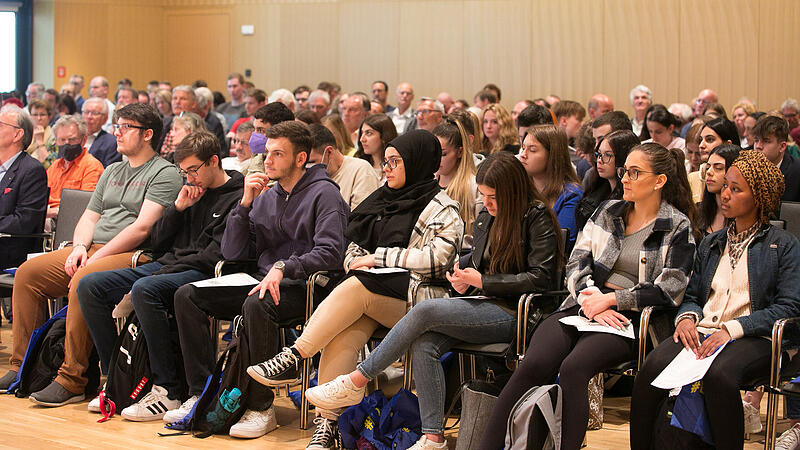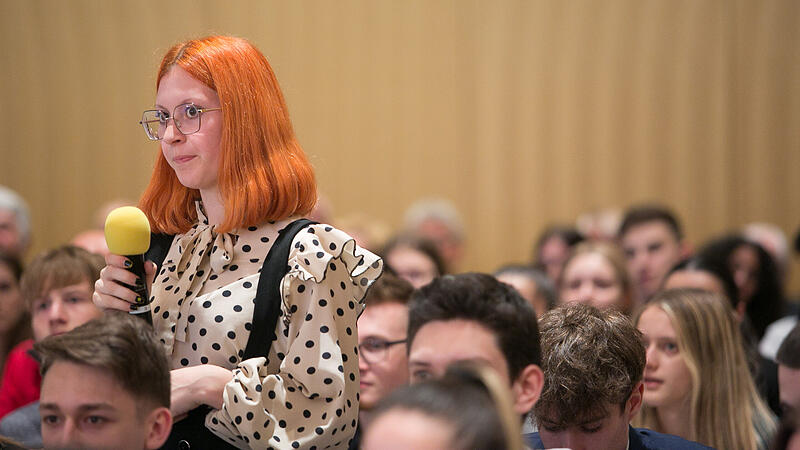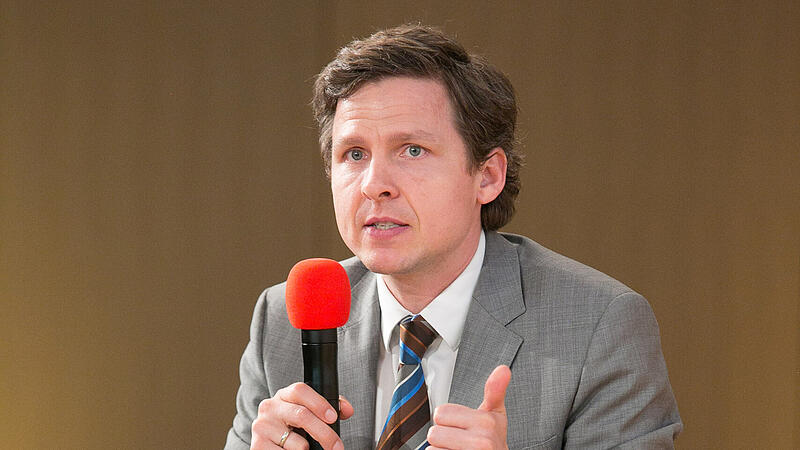“Red ma übern Euro” was not only the topic at the National Bank Forum of the OÖNachrichten, the visitors took up this motto and a lively discussion ensued with tricky questions to Thomas Steiner, member of the Board of Directors of the Oesterreichische Nationalbank (OeNB), who took care of the sick man at short notice Governor Robert Holzmann stepped in.
? Cash is losing out as a means of payment compared to credit and debit cards. Could it soon be like in other countries that cash is no longer accepted at all?
Steiner: Cash is our premium product. What we want is freedom of choice. Every citizen should be able to choose whether to pay in cash or by card. There is practically an oligopoly for ATM and credit cards, with Visa and Mastercard dominating. I don’t know what they do with the data. The cash is really anonymous and thus creates privacy.


? Have the pandemic and the war in Ukraine changed payment behavior?
Card payments have certainly increased during the pandemic. There has been a rumor that cash could transmit the disease, which of course is not true. When the war started, people bought toilet paper and pasta, and they took cash out of ATMs. This suggests that they trust cash and thus the euro.
? Cash use is also often associated with criminal transactions or with the informal economy.
There is this discussion. Some euro countries have introduced upper limits for cash, for example to prevent money laundering or the underground economy. I don’t really think that will do anything. In the shadow economy, for example, other ways would certainly be found quickly if cash were no longer available.
? The banks are reducing the number of ATMs, especially in rural areas. What does the National Bank say about this?
It is a fact that cash turnover is declining. But it’s not good news for us if there are fewer ATMs in rural areas in particular and people can no longer get cash as easily. We are trying to take measures here so that this development does not get out of hand. We are convinced that people in rural areas should have easy access to cash.




? Should we get rid of the one and two cent coins?
There are euro countries that have done that. I see nothing bad about these coins.
? Inflation is currently extremely high. When will the European Central Bank do something about it?
ECB President Christine Lagarde has already announced that she will do something. The emergency programs in response to the pandemic are scheduled to expire at the end of June. Interest rates could then be raised at the beginning of the third quarter. I expect three rate hikes by the end of the year of 0.25 percentage points each. I have complete confidence in the ECB.
? However, higher interest rates also mean a heavier burden, for example for those who have financed a house or apartment with previously cheap loans. Do you see this as a problem at the National Bank?
This is a very serious problem and we are well aware of it. We also have banking supervision at the National Bank. We monitor that the banks do not grant loans lightly. Banks often don’t like that at all. The same applies to highly indebted euro countries. We have that on our radar too. The task of the ECB is price stability, which we take seriously. The interest rate hikes will be made in small increments. The countries, but also private borrowers, have time to adapt to the new situation.
? There is always talk of a crash, even from experts who are to be taken seriously. A lot of people are slowly losing confidence. How do you see the situation? Does the euro have a future at all?
I am a representative of an institution that naturally believes in the future of the euro. But to be honest and personal: I think the euro is good. We don’t print counterfeit money. And from the bottom of my heart I believe in the future of the euro. The edifice of monetary union is stable. I am convinced that it will continue to be stable.
? Word is that we will soon have double-digit inflation rates. What is your prognosis? And will the euro soon be par with the US dollar?
I don’t think the inflation rate will go into double digits, not even for the monthly figures. Calculated over the course of the year, we will certainly come down from the current seven percent. However, we will not achieve the ECB’s target of an inflation rate of two percent, but it will be well below the current level. As for parity with the US dollar, that’s entirely possible. There are market forces at work. Interest rates in the US are already higher there. This increases the demand for dollars.
? There is always talk of a digital euro. Would that be an alternative to cryptocurrencies such as bitcoins?
I already have a problem with the term cryptocurrency. Bitcoins, and what they are all called, are not currencies, but investment vehicles. They don’t have a very important function that a currency has: that of storage. As far as I know, Bitcoin has lost 15 percent of its value in a week. I can’t imagine anyone wanting their salary paid out in bitcoin.
As far as the digital euro is concerned, there are still many unanswered questions, such as how anonymous it should be. The question of whether the owners of digital euros will then have an account with the ECB directly or whether banks will intervene is still open. These questions need to be resolved before we can put a proposal for a digital euro on the table. That will certainly take a few more years, I think.
Source: Nachrichten




